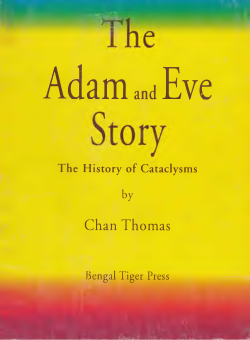If ever there were a controversy in the world of science, it is in the subject of evolution. Even the name creates angry reaction in some scientists when it is called The Theory of Evolution.
In each and every field of science, there is a strong standard of procedure known as The Scientific Process It is the one standard procedure common to all sciences wherein research is necessary to establish a scientific law. These stages constitute a scientific order of procedure utilized to establish that scientific law.
Let’s take a totally unrelated field to that of this book as an example: ESP, or Extra-Sensory Perception. For years scientists evaded this field of research in fear of besmirching their scientific escutcheons. Others took up the cudgel, expending years of effort in experimental research, trying to prove or disprove whether such a phenomenon exists. Not one of them formed a hypothesis to try to lay down how it works, if it works. All they did was to formulate tests to be performed to indicate that the phenomenon did or did not exist. That a hypothesis does not make. Forming a hypothesis is the first step in The Scientific Process.
I put together a hypothesis, formulating how the communication system works, utilizing the known forces of nature, plus a means for testing the hypothesis to determine whether it was valid. It worked in spades.
21
It worked with everyone on whom we tried the test, man, woman, adult and child; and I’m speaking of quantitative testing here, with one hundred percent success in every case.
The Scientific Process requires progressing from hypothesis to theory to law. Having proven my hypothesis, that meant that there now existed a valid theory concerning ESP. The next step to determine whether the theory is a law was to determine the predictability of ESP based on testing the theory to its predictability. This is an extremely difficult factor to test in the field of human experience, because human events are not immutable. If you feel that an event is going to happen to you which you do not want to happen, you can change circumstances to prevent its happening. Then how could you prove that it would have happened if you had not changed circumstances? If you had not changed circumstances and it did happen, how could you prove that you knew it was going to happen? Predictability was extremely difficult as a test.
I won’t go into the complex details, but we were able to prove predictability under controlled circumstances. That meant that we definitely had a firm law on our hands. I took that law and formulated a course that could be taught; UCLA welcomed my course into their Experimental College, where I taught it to 140 students with extreme success for four quarters.
22
Pages: 1 2 3 4 5 6 7 8 9 10 11 12 13 14 15 16 17 18 19 20 21 22 23 24 25 26 27 28 29 30 31 32 33 34 35 36 37 38 39 40 41 42 43 44 45 46 47 48 49 50 51 52 53 54 55 56 57 58 59 60 61 62 63 64 65 66 67 68 69 70 71 72 73 74 75 76 77 78 79 80 81 82 83 84 85 86 87 88 89 90 91 92 93 94 95 96 97 98 99 100 101 102 103 104 105 106 107 108 109




